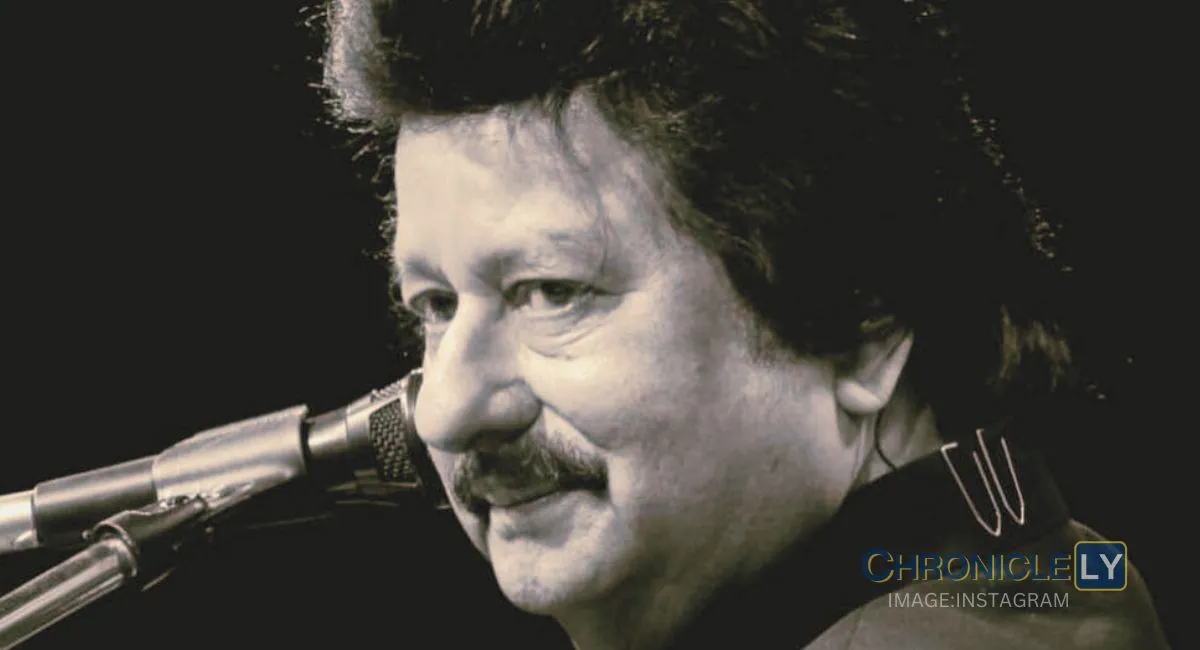Pankaj Udhas, the mellifluous voice that resonated with the depths of human emotions, left an indelible mark on the world of Ghazal music. Though he tragically passed away on February 26, 2024, after battling illness, his legacy as a pioneer and champion of this soulful art form continues to resonate with music lovers across generations.

I could still remember when I heard him on FM for the first time when I was a kid, and I knew the lyrics and their meaning. Therefore, the waves of love began hitting me when I heard this song, "Chaandi jaisa Rang hai Tere Sone Jaise Baal." What feelings do you get if you know Hindi and sing this song. I cannot explain in my words.
I can still remember that when we used to go to school, every boy used to sing this song when he looked at a girl. Therefore, I too. What he wrote in the lyrics will never be repeated in the future. Thus, I believe, a million of his fans, including me, felt sad that we lost the gem in Ghazals. The same thing was happened to many Indians on October 11, 2011, when we lost Jagjit Singh.
Born in Kakoda, a village in Maharashtra, in 1951, Udhas's musical journey began at a young age. He was captivated by the power of ghazals, drawn to their intricate poetry and melancholic beauty. He diligently honed his vocal skills, learning from the legendary Ustad Ghulam Hussain Khan Sahab. By the late 1970s, Udhas, with his distinct, soulful voice and impeccable understanding of Urdu poetry, was ready to carve his own path in the ghazal world. Trust me, people used to love Ghazals those days. We used to seek such shows, and on every festival day, local singers used to sing their songs, which was appreciated.
In 1980, his breakthrough arrived with the song "Chithi Aayi Hai" from the film "Naam." The song, with its poignant lyrics and Udhas's heartfelt rendition, became an instant success, catapulting him into the spotlight. This song is, I can say, my favourite one from his list. He followed this up with a string of captivating ghazals like "Zindagi Jab Bhi Mile," "Baithe Hain Kuchh Kehte Hain," and "Kaise Bulaye Tumhe," each one etching a deeper resonance with his audience.
Because of his distinctive singing style, Udhas stood out from his peers, including Rahul Vaidya, Talat Aziz, and Anoop Jalota. Many Bollywood celebrities also lamented Udhas's passing. His voice, characterized by its warmth and controlled power, conveyed the emotions embedded within the ghazals with profound sincerity. He possessed an exceptional understanding of Urdu poetry, ensuring his delivery accentuated the depth and beauty of the words. This combination of vocal prowess and interpretive brilliance endeared him to listeners, transcending cultural and linguistic barriers.
Udhas played a pivotal role in popularizing ghazals, bringing this traditionally elite art form closer to the masses. He infused ghazals with a contemporary sensibility, appealing to a younger generation while retaining the essence of the genre. His music resonated with people from all walks of life, offering solace, igniting passion, and sparking introspection.
Beyond his musical genius, Udhas was known for his humility and dedication. He actively mentored young musicians, fostering a sense of community and ensuring the continuity of the ghazal tradition. He also organized "Khazana," a music festival that provided a platform for upcoming talents and served as a charitable endeavor supporting those in need.
Udhas's contribution to the world of music extends far beyond his captivating ghazals. He composed music for films and television series, further widening his artistic reach. He also collaborated with renowned poets and musicians, enriching the ghazal landscape with diverse perspectives and creative interpretations.
Though his passing left a void in the hearts of millions, Pankaj Udhas's legacy lives on. His timeless ghazals continue to soothe and inspire. His dedication to the art form and his unwavering passion for music serve as an inspiration to aspiring musicians and a testament to the enduring power of ghazals.
As we remember Pankaj Udhas, let us celebrate his life and artistic contributions. Let his melodious voice and the profound messages embedded in his ghazals continue to touch our hearts and enrich our lives. His legacy as the "King of Ghazal" will forever be etched in the annals of music history.


